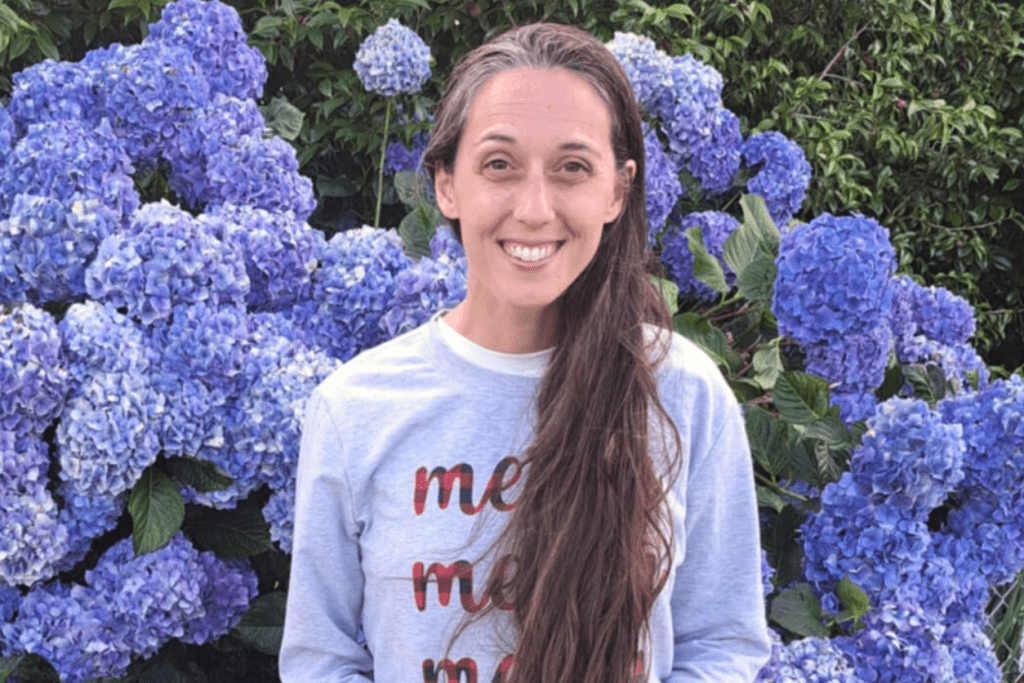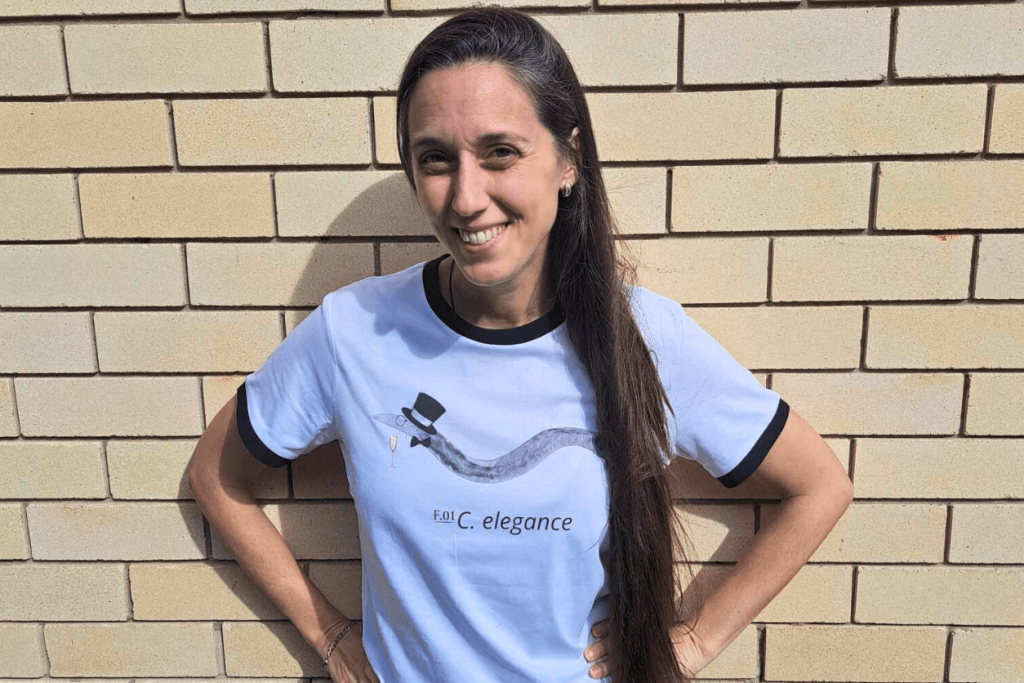Elizabeth’s journey

At 39, Elizabeth’s life is defined by resilience, compassion, and a deep desire to help others. As a volunteer yoga instructor in a brain injury unit, she offers support and movement to those on their own rehabilitation journeys. She is also pursuing research opportunities that explore the long-term impacts of brain injury in adolescents. Her passion for this work isn’t just academic—it’s deeply personal.
As a young child, Elizabeth experienced absence seizures, brief moments of disconnection that had seemingly faded by the time she turned ten. Doctors declared her seizure-free and took her off medication. For two years, Elizabeth lived a typical carefree childhood.
A childhood changed
When she was 12, Elizabeth remembers waiting to be picked up after dance class, the next thing she remembers is waking up in the ICU.
“People just wanted to know what happened, because I was completely unconscious. I was waiting to get picked up from a dance class and I fell down a flight of stairs. But what’s tricky is that I don’t remember it, no one was there, and I was completely unconscious by the time someone arrived.”
“What they think happened was that I had a breakthrough seizure”
At 12 years old, the weight of her condition was incomprehensible. Her biggest concerns at the time? “The first thing I asked was, ‘I’m not going to be able to see Titanic with my friends?’” she laughs, remembering the small but significant losses of childhood. “I had just gotten a brand-new Adidas jacket, which was ‘the’ thing, and they had to cut it off me. They said, ‘We had to cut your jacket off.’ I was like, what?! It’s gone.”
“I was in ICU for a chunk of time, then I moved to a paediatric ward, and I was discharged to go home. I had been at home for two days and I had a massive seizure. I then had to go back to the hospital. We never really will know if I would have developed epilepsy or not, but the fall didn’t help.”
The long road back
Returning to school felt like stepping into a different world. Once a bright and eager student, Elizabeth suddenly found herself struggling in ways she never had before.
“I opened my math book, and it was like looking at the font Wingdings. I was like, ‘this is wild.”
The fatigue was relentless. Concentration felt impossible. While her friends continued forward without hesitation, she felt stuck, trying to keep up in a body and mind that no longer felt like her own.
“I knew I wasn’t the same person. And that was something that was really difficult.”
Despite this, she pushed on. With the support of friends, family and patient teachers, she found ways to adapt. But the dream she once had—to become a paediatric neurologist—slipped away.
“The life I wanted to have for myself… that’s not going to happen. I can’t do math anymore. I get tired super easily.”
So, she found a new path.
She became a special education teacher, an educational interpreter, and eventually, a researcher. Each step was shaped by her own experience, a quiet but powerful determination to make a difference.
